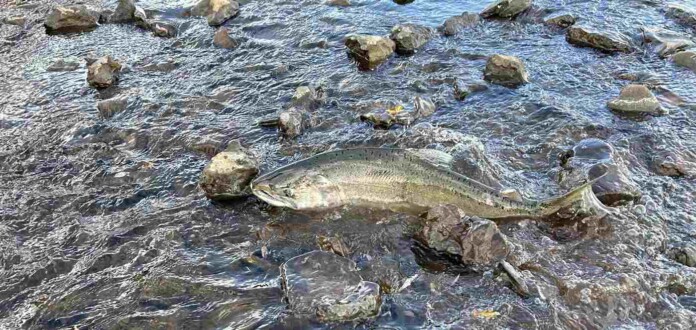This determined little fish symbolized a historic return for its species in the Klamath River Basin, following the recent removal of four major dams.
On October 16, Oregon Department of Fish and Wildlife (ODFW) identified a fall-run Chinook salmon in a Klamath River tributary, upstream of the former J.C. Boyle Dam site. This sighting marked the first salmon return to Oregon’s Klamath Basin since 1912, when the initial hydroelectric dam construction blocked fish migrations.
Despite the dam removal happening just two months prior, these resilient salmon traveled about 230 miles from the Pacific Ocean to reach their ancestral waters.
ODFW and the Klamath Tribes have been monitoring the river’s repopulation since the removal, working together to document this critical recovery milestone. “This is an exciting and historic development that highlights the resilience of salmon and steelhead,” ODFW Director Debbie Colbert remarked. “It also drives us to continue restoration efforts in the upper basin. My thanks go to everyone who’s supported this work over the past 20 years.”
Klamath Tribes Secretary Roberta Frost, using the tribal term “c’iyaal’s” for salmon, expressed gratitude: “The return of our relatives is overwhelming. Our members worked toward this and believed in it for so many decades. The salmon, like our people, know where home is and returned as soon as they were able.”
Mark Hereford, leading ODFW’s Klamath Fisheries Reintroduction Project, was part of the survey team that identified the Chinook. “We saw a large fish surface in the Klamath River and thought, was that a salmon or just a large rainbow trout?” he said. The team returned the next day to confirm the sighting.
This victory came after two decades of advocacy, legal challenges, and persistent efforts by the Yurok Tribe, other tribal organizations, and local and federal agencies. The campaign began in 2004, after a water flow reduction in one reservoir led to disease outbreaks that killed tens of thousands of salmon. Investigations pointed to negligent water management from the Irongate Dam, sparking a re-evaluation of the dams’ relevance, as they no longer served as key energy sources.
